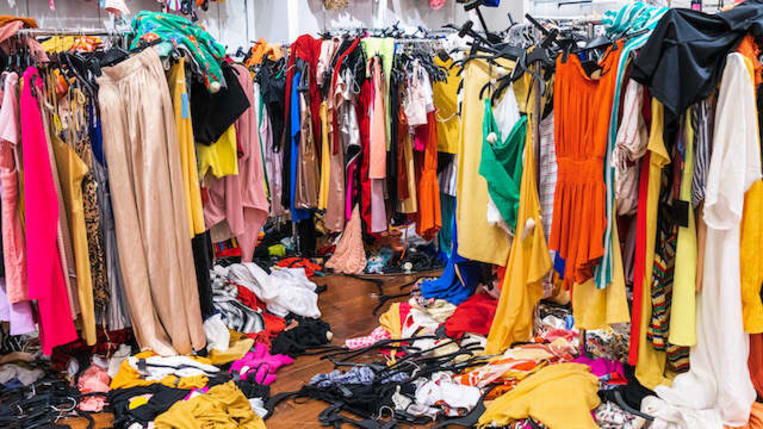
Latest News
BBB Tip: What you should know when donating used goods

(Getty)
Thrift shops, drop-off bins and collection trucks in the neighborhood make it easy to get rid of goods we don’t want. Both charities and for-profits are major players in the market for used goods, sometimes separately and sometimes in a variety of arrangements. If you care about the charitable benefit your goods provide, be sure you do your homework.
- Collection trucks. If you’re solicited by phone or mail to set out goods for collection, ask what charity will benefit from your donation, and how. Check out the charity with the local Better Business Bureau or check Give.org.
- Thrift stores aren’t all run to benefit a charitable cause. While the name of the store may identify the charitable affiliation, charity-sounding names have been used by for-profit stores with no connection to charity. If in doubt, ask the store to identify the charity it’s affiliated with and then contact the charity to verify the arrangements.
- Drop-off boxes aren’t invariably connected with charities. If there’s a phone number on the bin, call it for information. Expect straight answers. Be wary of names you don’t know or that seem similar to ones you do. Some bins belong to for-profit businesses, but that may not be obvious from the labeling on the bin. Feel free to ask a charity how it is benefiting from a clothes collection. It’s not safe to assume that used clothing will go to the needy, for example; it may be sold to a third party to make rag bond paper or for other purposes.
- Acceptable/unacceptable donations: Don’t assume that charities welcome all second-hand items. If you have any questions about an item’s acceptability, call the charity and ask.
- Dumping items that are essentially junk, with the thought that “someone can use them,” is not a charitable act. Disposing of goods that cannot be sold or re-cycled costs charities millions of dollars each year.
- If you itemize deductions on your tax returns and want to take a deduction for the goods you donate, consider their condition. The IRS requires, for deductibility, that they be in good used condition or better—not unsalable, like a torn sweatshirt, for example.
- Don’t ask or expect charities to assign values to the goods you donate. That is your responsibility. For any non-cash contributions totaling over $500, you will need to complete and attach IRS Form 8283 to your next tax return. For more deductibility information, visit the IRS website or CRA website and/or consult an accountant. Read BBB's tips on how to choose a tax preparer.
For More Information
Visit BBB Wise Giving Alliance’s website (Give.org) for smart giving tips, and check BBB's charity and donor resources.
BBB of Metro NY contributed this article.
Still Need Assistance?
Contact Your Local BBB
Your local Better Business Bureau can assist you with finding businesses you can trust. Start With Trust®.
General Inquiries:
6336-684 (416)
Additional Resources
Central Ohio BBB Business Podcast